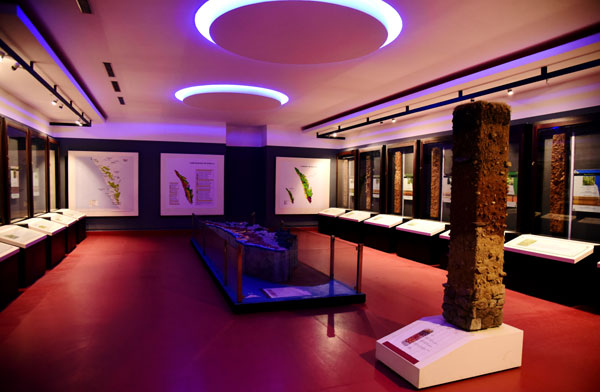

The soil museum in KFRI is unique in the sense that it showcases the diversity of soils in different types of forest ecosystems and the reflections of degradation of natural vegetal covers on the soil beneath. The soil museum was inaugurated on 10 December 2015 as part of celebrating the International Year of Soil. The forest soil museum is the first of its kind in India. It provides valuable information on soil genesis and transformation in the humid tropics.
Soil, the critical source of life on this planet, is a very dynamic and heterogeneous natural resource. The thin layer of soil above the bedrock is the centre of many global issues, such as food security, water security, climate change adaptations and mitigation, biodiversity protection, environmental and human health, etc.
Usually, there are a lot of restrictions for the general public to enter the forests, and even if they enter, they are unable to understand what is happening below the forest floor. The transfer of knowledge to the general public on the significance of soil on the sustenance of life on this planet and the need to sustain the ecosystem services they render in the changing global climatic scenario has become a significant challenge. The idea of communicating and sensitising the general public on soils and their functioning through soil museums had been vested with the soil science community during the historical evolutions.
The most important exhibits in this forest soil museum are well-preserved monoliths of forest soils. A monolith is a profile representing the soil typical of a region, with all the essential characteristics preserved intact. It displays vertical sections of the soil from the surface to the bedrock below, showing the various horizontal layers or genetic horizons. Alongside each monolith, information on the taxonomy, physical and chemical characteristics of the soil, forest type, and the picture of forest type and soil profiles is provided. Any degradation of a forest ecosystem is reflected in the soil profile. The visitors to the museum are exposed to and educated on the degradation of soil due to deforestation and the consequent depletion of ecosystem services, which ultimately threatens the existence of life on this planet.
Currently, there are 20 Soil monoliths in the museum that depict the variation in morphological properties of soil beneath different forest ecosystems like evergreen forests, Shola forests, grasslands, dry deciduous forests, scrub forests, degraded forests in the Kerala part of Western Ghats. The museum is planned to expand by displaying more monoliths from different forest types across India.
Soil museum
Kerala Forest Research Institute
Peechi P.O, Thrissur District, Kerala - 680653, India.
Tel: +91-487-2690182
e-mail: soilmuseum@kfri.res.in